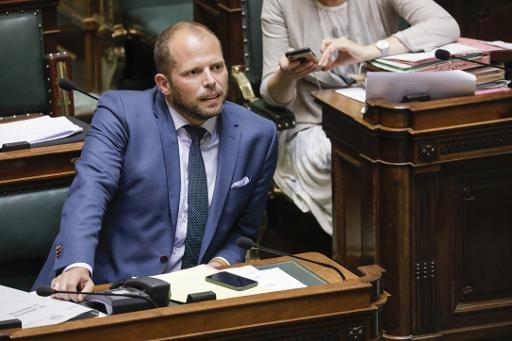Two series of verifications done on applications for international protection show that in 64.4% of cases, they contain at least one discrepancy, Secretary of State for Asylum and Migration Theo Francken said in response to a written question from parliamentarian Benoît Hellings of the ecologist party, Ecolo. Francken had sparked a controversy in 2016 when he stated, while on a visit to Denmark, that 60% to 70% of asylum seekers lied about at least one aspect of their files.
Unable to substantiate his claim with figures, he then asked the Immigration Service to do spot checks on the applications. Two series of spot checks, each one lasting one week, were conducted in early July 2017 and early September 2017. Requests for protection from a total of 545 persons were examined and 593 discrepancies from 351 applicants were detected.
The most frequent anomaly was the lack of credibility of the story told by the applicant. This conclusion was reached in 119 of the cases by the Office of the Commissioner General for Refugees and Stateless Persons, GCRS, which is the body that grants or denies protected status.
The second most frequent discrepancy was false or hidden documents (117), followed by people falsely denying that they had filed applications for asylum in other countries.
Under the Dublin Accords, requests for asylum must be processed in the country where the asylum seeker first submitted an application, usually Italy, Greece or Spain.
In 67 cases, applicants used many names in Belgium or in another country, while in 62, they listed different reasons in the application for protection and in other applications for residence.
Other anomalies relate to false itineraries (60 cases) and differing ages for the same person (46).
Only four (4) persons gave identities that were different from those under which they were known by the office.
Parliamentarian Hellings requested certain statistics but, judging from a response by Francken about Syrian nationals, such statistics were not available.
It was also mentioned that a discrepancy in a file did not necessarily mean the application would be rejected since the CGRS looks at all elements in a file.
The Brussels Times

